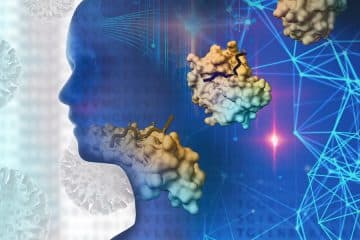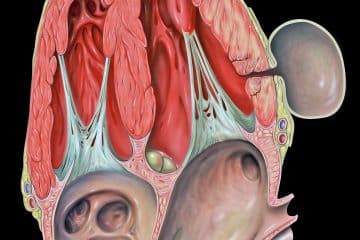A common refrain during the COVID-19 pandemic is, “I’m so tired.” After months of adjusted living and anxiety, people are understandably weary. Parents who haven’t had a break from their kids are worn out. Those trying to juggle working from home with homeschooling are stretched thin. Between concerns about health, finances, and isolation, everyone is feeling some level of additional stress during this unusual time, and that’s tiring. We all could use a good, long nap — or better yet, a vacation.
But while a break would be nice, most people — except those who are actually sick with COVID-19 or other illnesses — are able to push through their fatigue, precisely because they aren’t sick. “Tired” is a nebulous word that covers a broad spectrum of levels of fatigue. A crucial distinction, however, is between regular fatigue and illness-related fatigue.

Lonely sad woman deep in thoughts sitting daydreaming or waiting for someone in the living room with a serious expression, she is pensive and suffering from insomnia sitting on couch
Regular fatigue
Everyday fatigue that is not illness-related starts with a baseline of health. You may feel sleepy, you may in fact be sleep-deprived, or your body and mind may be worn out from long hours, exertion, or unrelenting stress — but you don’t feel sick. Your muscles and joints don’t ache like when you have the flu. You are capable of getting out of bed and powering through the day, even if you don’t want to. A cup of coffee or a nap might perk you up.
This type of fatigue is usually related to external factors: lack of sleep, stress, an extra-hard workout. But internally, your body is working well: your glands and organs are operating properly; infection is not depleting your body of energy; your nervous system may be overtaxed, but it’s not frayed from actual impairment.
Illness-related fatigue
When I was acutely ill with persistent Lyme, babesiosis, and ehrlichiosis (all tick-borne illnesses), as well as chronic Epstein-Barr virus, a good night’s sleep did nothing. Naps were staples of my day that helped me survive but didn’t improve my energy. Drinking a cup of coffee was akin to treating an ear infection with candy. No matter how much I rested, my exhaustion persisted.
I felt like I had the flu, except it lasted for years. My whole body ached. I suffered migraine headaches. I had hallucinogenic nightmares. Exercise was out of the question; at times, I was literally too tired to walk up a flight of stairs or sit at the dinner table. I couldn’t concentrate, unable to read or watch TV. Sometimes I was too tired to talk.
There was no pushing through this level of fatigue, because it was caused by internal factors: illnesses that were ravaging my body. Only when they were adequately treated did I start to get my energy back.
For me, the root causes were bacterial infections (Lyme, ehrlichiosis), a parasite (babesiosis), and a virus (Epstein-Barr). Profound fatigue may also result from a host of other diseases and conditions, including chronic fatigue syndrome, fibromyalgia, and multiple sclerosis.
Is it everyday fatigue or illness-related fatigue?
When determining whether your tiredness is everyday fatigue or illness-related, consider the following questions:
- Do you feel worn out, or do you feel sick?
- Have you experienced this before, or does it feel more extreme or unrelenting?
- When you lessen the load of external factors (work, stress, long days) does the fatigue improve, or does it persist?
- Do you feel refreshed after a good night’s sleep or a nap?
- Can you go about your day, or is it impossible to get out of bed?
- Has the fatigue persisted longer than you would expect?
- Are you experiencing other symptoms that might point to illness?
The bottom line
No one knows your body better than you do. You know what feels normal, and you know what you feel like when you’re sick. If you are not responding to regular fatigue remedies, your fatigue has persisted over time, you have other symptoms, or you just don’t feel right, it’s probably time to call your doctor.


